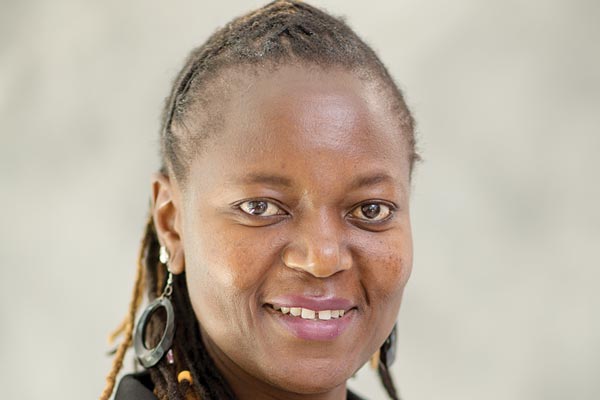
guest column:Miriam Tose Majome
I LEARNT much more about the richness of rural living and the people that live there than just the art and skill of riding in ox-drawn carts in the two years I spent as a teacher in rural Mutoko.
My ox-drawn cart adventures were narrated in the previous article. One of the most important lessons was learning that there is no typical or standard rural person.
The stereotype of a rural person is a poor, uneducated, uninformed, backward villager among many other negative adjectives used to describe them.
However, in truth the real difference between people who live in urban areas and people who live in rural areas is their geographical location and addresses. The term rural people is in itself a misnomer.
Rural people are just people who live and work in rural areas and are not all villagers as is commonly believed. The profiles of people who live in rural areas are the same as those people who live in urban areas.
The only distinction is that there are no unemployed people in rural areas. Indeed there may be lazy unproductive people just like anywhere else, but in rural areas everybody works.
Small-scale farmers, commonly known as peasant farmers, make up the majority of people who live in rural areas but they are by no means the standard of rural people and they are by no means unintelligent and backward merely because they live in villages.
- Chamisa under fire over US$120K donation
- Mavhunga puts DeMbare into Chibuku quarterfinals
- Pension funds bet on Cabora Bassa oilfields
- Councils defy govt fire tender directive
Keep Reading
Many people who live in rural areas, in villages or not in villages, are educated and informed and are commercial farmers, pensioners, nurses, doctors, lawyers, engineers, administrators, businesspeople, politicians, teachers, among others.
There was no electricity at the school I taught, but I had a small battery-powered radio as did the other teachers. That little radio whose fragments now lie in a landfill somewhere remains one of the best friends I have ever had.
It was the only company I had in insomnia-ridden nights in my tiny room with spotty cracked walls undergoing slow termite destruction. The voices of familiar strangers from distant worlds which came from the radio kept me company night after night.
Through the short wave dial, I learnt about what was happening in worlds far away far different from my own small world. It was in the late 1990s and I was as informed as anyone in town, who had a television and newspapers, about Slobodan Milosevic and his role in the Bosnian conflict, the dramatic death of Princess Diana and her boyfriend in a French tunnel, Bill Clinton’s sex scandal with the young White House intern called Monica Lewinsky, Laurent Kabila’s celebrated march into Kinshasa to topple Mobutu Seseseko.
On chilly Tuesday nights, we teachers gathered around a fire toasting mhandire (pan-roasted maize) or mutetenerwa (groundnuts) listening to Chakafukidza Dzimba Matenga on the then Radio 2 and on Friday nights with youthful zest we danced to John Matinde’s Friday Night Grooves on the then Radio 3.
We followed local and international current affairs and news as well as music and social trends.
We were people living in rural areas but we were never backward or uninformed. In fact we were much more informed about the world than many people our age who were living in town just like it is now with all their gadgets, internet connectivity and satellite television.
Our humble little radios opened the world to us and developed in most of us an appreciation and love for information. In rural areas a radio is more than just a piece of household furniture but is a highly valued indispensable communication device.
People living in urban settings have access to a choice of devices and platforms at any given time with which to access information but still many choose to remain ignorant and uninformed.
With all their privileges, many people with ready access to information could not say what the situation with the war in Yemen was, that is if they even knew that there had been a war going on for more than seven years there.
However, many rural people even deep in Chikombedzi know about the Yemen crisis in detail because radio is all they have, because when radio talks they listen.
The most pressing commitment and preoccupation for a lot of urban folk is arguing and trading insults for long hours in unproductive social media debates with anonymous characters they will never meet. People who live and work in rural areas are generally and usually not given to such folly.
In my classes some of my young students enjoyed the examples I used to illustrate certain teaching points. There were barely any teaching resources in that remote-impoverished school and the things I heard on radio gave me a constant supply of material to share with them many of whom had no radios at home.
I told them stories about worlds far beyond their imagination and their village boundaries.
Some of them listened with genuine wonder and interest, especially the ones who had never been on a bus to anywhere.
The only names of places outside Zimbabwe which some of them had ever heard about were South Africa and London. I told them about countries they had never heard about like Australia, France, Canada and even Bosnia. It intrigued me when some of them started talking about wanting more than their rural lives offered them. One of those young students was an orphaned boy called Takesure who lived with his semi-blind elderly grandmother in one of the surrounding villages.
He used to come to school barefoot and his daily lunch was always plain boiled maize kernels carried in a tattered washed out old sugar packet.
Takesure, the 14-year-old barefoot rural schoolboy who had never been on a bus a single day in his life, started to write vivid stories albeit in imperfect English about being a pilot and flying people to America on his own aeroplane.











